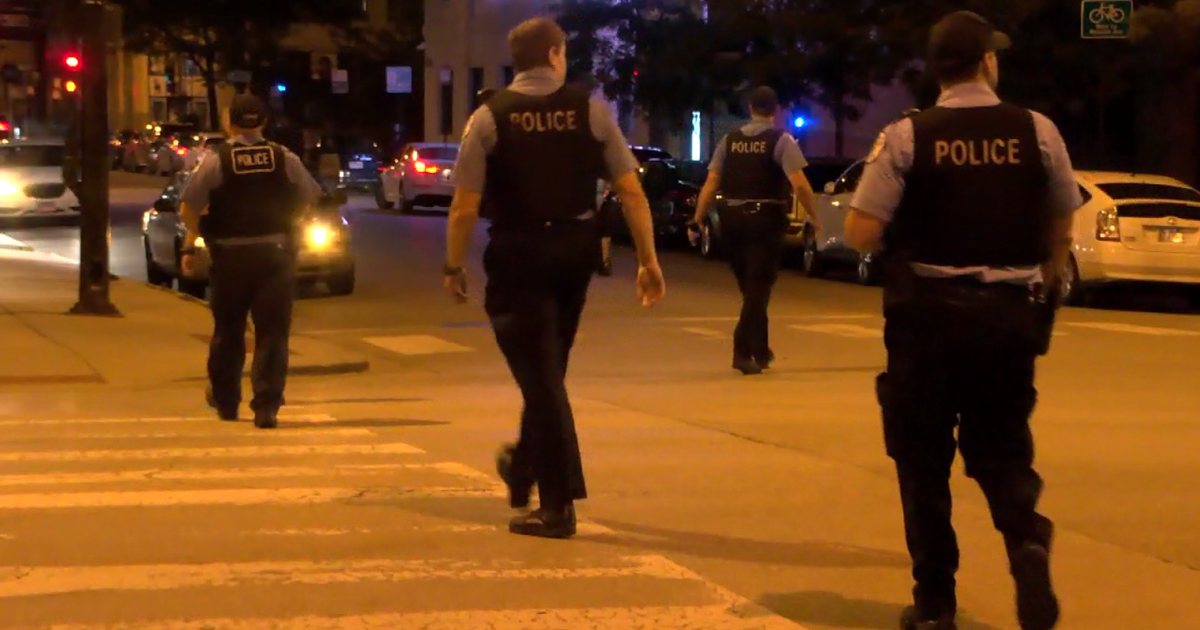New Watchdog Report Says CPD Has Made 'Minimal Progress' Replacing 'Deeply Flawed' Gang Database
CHICAGO (CBS) -- Two years after the city's top watchdog found the Chicago Police Department's gang database was filled with inaccuracies, a follow-up report from the Office of Inspector General found CPD has made "minimal progress" on its pledge to replace the database, and is still relying on "deeply flawed" information.
"CPD has now spent nearly two years relying on data that the Department itself has publicly recognized to be deficient. Over that period, CPD has not developed any new statement, in either policy or training, of the specific strategic value of the gang information it proposes to collect in the CEIS [Criminal Enterprise Information System]," the OIG's report stated.
The report released Wednesday took CPD to task for failing to take substantial steps toward the creation of a new gang database, even though the department admitted it must improve how it tracks gang members, and had vowed to create a new system as the centerpiece of its response to the original 2019 OIG report.
Wednesday's report noted CPD has not established a timeline for completing the new gang database, nor assigned anyone specific to oversee the project.
[scribd id=501113645 key=key-CQC1c62LN6Yt8GYtYM4o mode=scroll]
The report also criticized the department for leaving outdated information on its website about the effort to create a new gang database, accusing CPD of potentially misleading the public about the criteria that would be listed as a gang member.
Despite all that, the inspector general's office found some officers continue to rely on flawed information in the old database.
"There is little evidence that the Department's flawed generation, use of gang affiliation designations and data, and the troubling disparate and inequitable impact on segments of the community, have changed since OIG's original report," the inspector general's office said in a statement on the follow-up report.
For example, last year the department used gang affiliations listed in the database when it objected to the state granting a concealed carry license to an applicant whose license was ultimately rejected. That person had admitted to being a gang member after a 2006 juvenile arrest on misdemeanor charges, but following a 2010 arrest in which charges were dropped, the same person expressly denied any gang affiliation.
"In sum, CPD accessed a gang identification for a juvenile, recorded in its database 15 years ago, and then shared that information with the State of Illinois, after the publication of OIG's April 2019 report and CPD's acceptance of most of the recommendations contained therein," the report stated.
The database is a collection approximately 117,000 people who police maintain have gang affiliations or associations. However, the inspector general's office said police officials have acknowledged that number is far too high, and the actual number of street gang members in the city is more likely between 54,000 and 55,000.
In response to the follow-up report, Police Supt. David Brown disputed the inspector general's conclusions, accusing the OIG of publishing its findings without completing interviews suggested by CPD, and claiming the report "contains outdated information and is incomplete."
The superintendent noted that, while OIG was conducting its follow-up interviews, CPD was undergoing a "significant transition of leadership," after Brown took office last year, and now that the reorganization has been completed, he has tapped Deputy Chief Thomas Mills to lead the new gang database project, which he expects will be completed by September.
"As we move forward in our quest to repair relationships with the community, it is important that we all understand the limitations placed on the Department to move forward from the wrongs of yesterday to a place where the Department stands as an example to the country of what constitutional policing is and should be. These limitations are in a variety of areas including financial limitations, personnel constraints, and capacity concerns, not to mention the physical and emotional toll that this past year has taken on our members," Brown wrote in a letter to the inspector general's office.
However, Brown did not dispute that in the meantime CPD has continued to rely on flawed data from the old gang databases.
The original 2019 report on the CPD gang database urged a reevaluation of its usefulness compared to the resentment it can engender; and called for the creation of a clear appeals process for getting names purged from the system when people believe they have been wrongly added to the list, or are no longer tied to a gang.
The inspector general said there's not one unified database, but rather many different places where the data is stored, and 95 percent of the people in those files are black or Hispanic. That's caused many residents to fear they are being unfairly targeted.
The original report urged the department to make comprehensive changes to the database if it intended to continue collecting data on gang membership.



